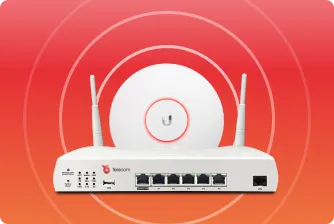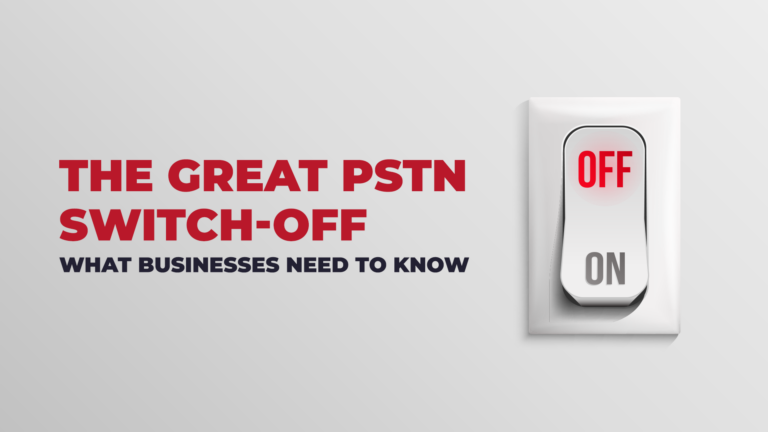Effective communication is an essential aspect of business operations that cannot be overlooked. It’s the backbone of any successful organisation and a key component of building strong relationships with employees, customers, and other stakeholders. According to a study conducted by Holmes Report, companies with good communication practices are 50% more likely to have lower employee turnover rates and 47% more likely to have higher levels of employee engagement. As industry expert Peter Drucker stated, “Communication is the most important skill any leader can possess.”
In today’s fast-paced business environment, effective communication is more critical than ever, as organisations strive to meet the expectations of their customers, shareholders, and employees while navigating constantly evolving technologies and industry trends. The ability to communicate effectively can determine the success or failure of a business, as it impacts all aspects of its operations, from employee morale and customer satisfaction to innovation and conflict resolution.
Organisational Effectiveness
Organisational effectiveness is a crucial aspect of any business’s success, and effective communication is a critical driver of organisational effectiveness. As industry expert John Baldoni states, “Communication is the vehicle that drives organisational effectiveness.” Proper communication enables organisations to coordinate and align their efforts toward achieving common goals, increasing efficiency and productivity. On the other hand, poor communication can hinder organisational effectiveness, leading to wasted resources, confusion, and conflict. Communication breakdowns can occur at any level of an organisation, from individual employees to departments and across different locations, making it essential to establish clear communication channels and protocols.
Effective communication also enhances transparency and accountability, allowing employees to understand their roles and responsibilities and how they contribute to the organisation’s success. According to a study by Towers Watson, companies with solid communication practices have a 47% higher total return to shareholders compared to those with poor communication practices. Moreover, good communication can improve decision-making processes, as it enables all stakeholders to provide input and feedback, leading to better-informed decisions.
In summary, effective communication is a critical driver of organisational effectiveness, as it enables efficient coordination, enhances transparency and accountability, and improves decision-making processes. As industry expert David Grossman stated, “Effective communication is the foundation of every successful business.” Thus, businesses must prioritise effective communication practices to maximise their organisational effectiveness, increase productivity, and ultimately achieve their goals.
Employee Engagement
Employee engagement is a critical aspect of business operations, and effective communication is a key driver of employee engagement. According to a study by Gallup, companies with engaged employees have 21% higher profitability than those with disengaged employees. Effective communication enables organisations to establish trust and build strong relationships with their employees, leading to increased job satisfaction and a sense of belonging. It also helps employees understand their roles and responsibilities, feel valued, and recognise their contributions to the organisation’s success.
Leaders who communicate effectively create a culture of openness and transparency, where employees feel comfortable sharing their ideas, feedback, and concerns. As industry expert Simon Sinek stated, “Leadership is not about being in charge. It’s about taking care of those in your charge.” Effective communication enables leaders to take care of their employees, understand their needs and aspirations, and provide them with the necessary support and resources to succeed.
Moreover, effective communication is essential in times of change, such as mergers, acquisitions, or restructuring, as it helps employees understand the rationale behind the change and how it will impact them. It also enables organisations to address employee concerns and minimise resistance, leading to a smoother transition.
In conclusion, effective communication is a critical driver of employee engagement, leading to increased job satisfaction, productivity, and profitability. As industry expert Ken Blanchard stated, “The key to successful leadership today is influence, not authority.” Effective communication enables leaders to influence their employees positively, build trust, and create a culture of engagement and innovation.
Customer Satisfaction
Customer satisfaction is a critical aspect of any business’s success, and effective communication is a key driver of customer satisfaction. According to a study by PwC, 73% of customers point to customer experience as an important factor in their purchasing decisions. Effective communication enables organisations to understand their customers’ needs and preferences, provide them with personalised solutions, and build strong relationships that foster loyalty and advocacy.
Effective communication also enables organisations to address customer complaints and concerns promptly and effectively, leading to improved customer satisfaction and retention. As industry expert Shep Hyken stated, “Communication is the key to creating strong customer relationships.” Effective communication helps organisations build trust and credibility with their customers, leading to increased customer loyalty and positive word-of-mouth referrals.
Moreover, effective communication enables organisations to innovate and adapt to changing customer needs and preferences, leading to a competitive advantage in the marketplace. By listening to their customers’ feedback and ideas, organisations can develop new products and services that meet their customers’ evolving needs and preferences, leading to increased customer satisfaction and loyalty.
In summary, effective communication is a critical driver of customer satisfaction, leading to increased loyalty, positive word-of-mouth referrals, and a competitive advantage. As industry expert Tony Hsieh stated, “Customer service shouldn’t just be a department, it should be the entire company.” Effective communication enables organisations to embed customer-centricity throughout their operations, from product development to customer support, leading to a culture of excellence and customer satisfaction.
Conflict Resolution
Conflict is an inevitable part of any workplace, but effective communication is a key driver of conflict resolution. According to a study by CPP Inc., employees in the United States spend an average of 2.8 hours per week dealing with conflict, which translates to approximately $359 billion in paid hours. Effective communication enables organisations to manage conflicts promptly and effectively, leading to improved relationships, productivity, and morale.
Effective communication helps organisations identify and address the root causes of conflicts, rather than merely treating their symptoms. It enables employees to express their concerns and feelings openly and respectfully, leading to increased trust and understanding among team members. As industry expert Stephen Covey stated, “Most people do not listen with the intent to understand; they listen with the intent to reply.” Effective communication enables organisations to listen with the intent to understand, leading to more effective conflict resolution and improved relationships.
Moreover, effective communication enables organisations to develop a culture of collaboration and problem-solving, where conflicts are seen as opportunities for growth and learning rather than obstacles to progress. It enables employees to work together to find mutually beneficial solutions that address everyone’s needs and concerns, leading to improved productivity, innovation, and morale.
In conclusion, effective communication is a critical driver of conflict resolution, leading to improved relationships, productivity, and morale. As industry expert Dr. John Gottman stated, “The real test of effective communication is not what is said but what is heard and understood.” Better communication enables organisations to ensure that what is said is heard and understood, leading to more effective conflict resolution and improved workplace dynamics.
Innovation
Innovation is a critical driver of success in today’s fast-paced and ever-changing business environment, and effective communication is a key enabler of innovation. According to a study by McKinsey & Company, companies that prioritise innovation outperform their peers by up to 30% in revenue growth. Effective communication enables organisations to generate and exchange ideas, foster creativity, and promote a culture of innovation.
Effective communication helps organisations break down silos and promote collaboration among team members with diverse backgrounds and expertise. It enables employees to share their ideas and perspectives openly and respectfully, leading to a diversity of thought that fuels innovation. As industry expert Jeff Bezos stated, “Innovation comes from the intersection of customer obsession and willingness to invent and experiment.” Effective communication enables organisations to understand their customers’ needs and preferences and develop innovative solutions that meet those needs.
Moreover, effective communication enables organisations to build a culture of experimentation and continuous improvement, where failure is seen as a learning opportunity rather than a setback. It enables employees to share their successes and failures openly and transparently, leading to a culture of trust and accountability that fosters innovation. As industry expert Tom Kelley stated, “Innovation is messy, but organisations that embrace messiness are more likely to succeed.”
In summary, effective communication is a critical enabler of innovation, leading to improved performance, growth, and competitiveness. As industry expert Peter Drucker stated, “The best way to predict the future is to create it.” Good communication enables organisations to create their future by generating and exchanging ideas, fostering creativity, and promoting a culture of innovation. Therefore, businesses must prioritise communication practices to maximise their potential for innovation and ultimately achieve their organisational goals.
Conclusion
In conclusion, effective communication is critical to the success of any business. It drives organisational effectiveness, employee engagement, customer satisfaction, conflict resolution, and innovation. By prioritising good communication practices, organisations can improve their bottom line, build stronger relationships with stakeholders, and create a culture of trust and accountability. As industry expert Warren Buffet stated, “It takes 20 years to build a reputation and five minutes to ruin it. If you think about that, you’ll do things differently.” Great communication enables organisations to build and maintain their reputation by establishing clear expectations, setting realistic goals, and maintaining open and transparent communication with stakeholders.
In today’s fast-paced and ever-changing business environment, effective communication is more important than ever before. As businesses navigate the challenges and opportunities of the 21st century, communication will be a key differentiator that separates the winners from the losers. Therefore, businesses must prioritise proper communication practices to ensure their long-term success and sustainability.
Here at Yo, we’re all about improving the success of the businesses we deal with. So, If you are interested in learning more about improving your business development, or generally future-proofing your business – enter your contact details into the form below and we’ll be in touch with how we can help you and your business TODAY!











